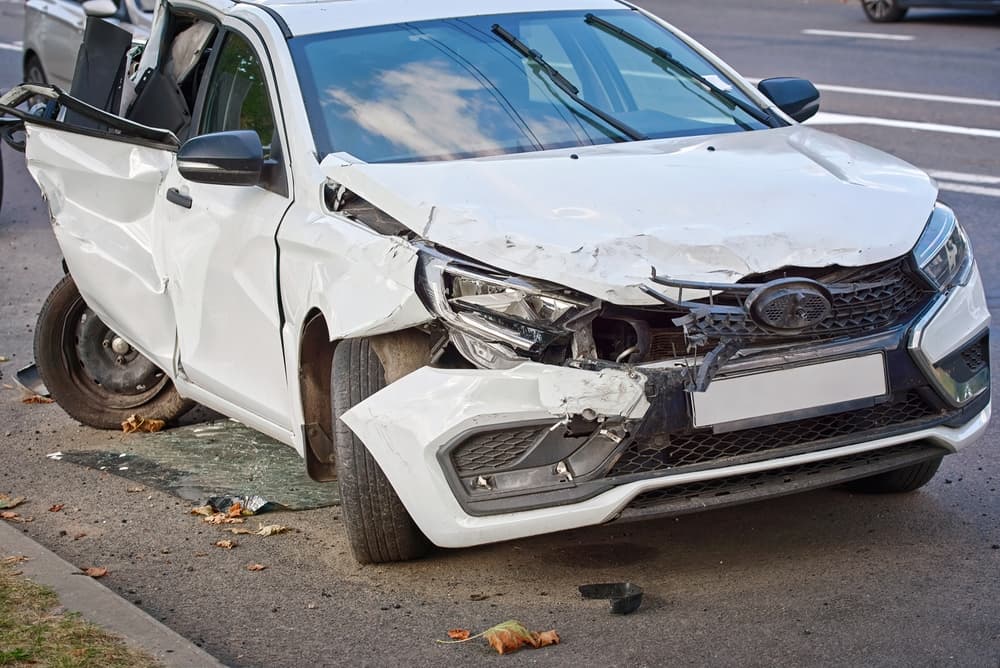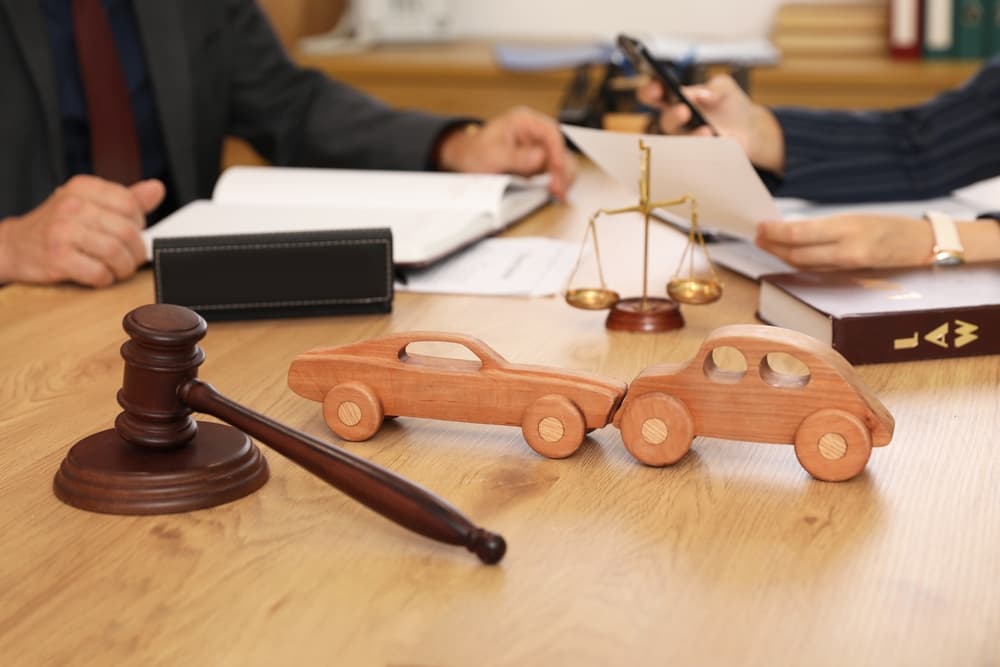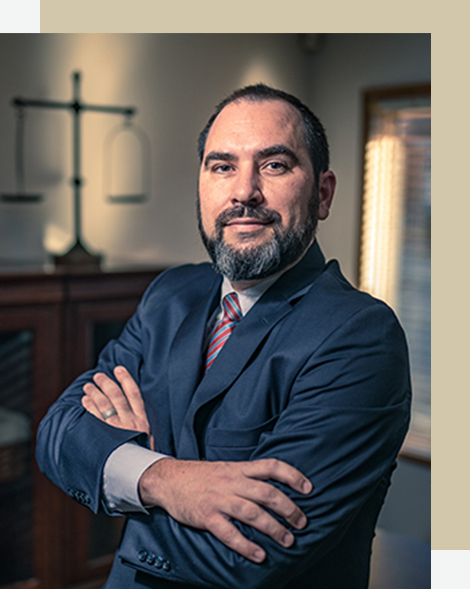When a car crash occurs, whether the driver or the vehicle’s owner is responsible depends on the facts surrounding the incident. Under ordinary circumstances, the driver bears liability. However, the owner may share responsibility or bear full accountability for loaning the car to someone who causes an accident.
After a collision, liability in car crash cases is not always clear-cut. To find out who may be held responsible, work with a car accident attorney to support your pursuit of compensation.
Several considerations are evaluated, so proceeding with legal guidance can strengthen your ability to recover damages by ensuring that all liable parties are properly identified and held accountable under the law.
Continue reading for an explanation of how fault is evaluated in these situations and what legal principles apply when the owner and the driver are not the same person.
Scenarios for Car Accident Liability

The driver of a car is legally bound to drive safely and operate their vehicle in line with all traffic laws. This duty extends to everyone who shares the road, such as pedestrians, bicyclists, passengers, and other motorists. When a driver violates traffic laws, they may be held responsible for any resulting harm.
At the same time, vehicle ownership carries legal responsibilities beyond driving. The registered owner must maintain proper registration, insurance coverage, and ensure that anyone allowed to drive the car does so lawfully. The owner may still face liability depending on the circumstances.
Several legal doctrines and relationships can create or extend liability to the vehicle owner, even when someone else is behind the wheel.
These include the following:
Permissive Use
In most jurisdictions, a vehicle owner may be held financially responsible if they voluntarily allowed someone else to drive their car and that person caused a crash. This principle is known as “permissive use.” It assumes that the owner, by granting consent, accepted a degree of risk associated with another person operating their vehicle.
Insurance policies often extend coverage to permissive drivers, but that coverage may be limited. If the damages exceed the policy limits or if the insurance company disputes coverage, the owner could be held personally liable. This is especially relevant when the driver is underinsured or if it can be shown that the owner had reason to question the driver's ability to operate the vehicle safely.
Employer-Employee Relationship
An employer may need to pay for an employee's negligent acts if the crash happened while carrying out employment duties. This applies when the employee was performing job-related duties or driving a company vehicle at the time of the collision.
For instance, if a delivery driver crashes a company vehicle while making scheduled deliveries, the company may be held liable for damages. The key question is whether the employee was performing a task related to their job when the incident occurred. If so, liability may shift to the employer.
Negligent Entrustment
Negligent entrustment arises when a car owner allows someone to use their vehicle despite knowing, or having reason to know, that the person is unfit to drive safely. This can include lending a vehicle to someone who is intoxicated, unlicensed, inexperienced, or has a history of reckless driving.
If it can be proven that the owner knowingly entrusted the vehicle to a dangerous or incompetent driver, they may be held responsible for the losses resulting from the crash. Negligent entrustment materially involves a failure in judgment that contributes directly to the risk of harm.
Parental Responsibility Law in Illinois
Under Illinois Parental Responsibility Law (750 ILCS 115/), the parent of a minor can be held financially liable for the child’s willful or malicious conduct. This statute is commonly used in property damage and personal injury claims when a minor intentionally causes harm.
In car crash scenarios, this law would not typically apply to ordinary negligence, such as a minor running a stop sign or failing to yield. The statute limits liability to willful or malicious acts, which excludes the majority of traffic-related conduct unless there was an intent to cause harm or extreme recklessness amounting to willfulness.
However, a parent may still need to pay if they knowingly allow a minor who is unlicensed, inexperienced, or otherwise unfit to drive the family car. If that child causes a crash, the parent may be personally liable for negligently entrusting the vehicle.
Also, if a parent does not supervise a known high-risk driver, such as a teen with a history of traffic violations, a plaintiff may allege independent negligence on the part of the parent.
How Can an Attorney Help With Liability?

Establishing liability after a car crash involves more than simply pointing to who was driving. It requires a detailed legal analysis of facts, documentation, and the relationships between the parties involved.
An attorney’s role in this process is to build an evidence-based case that identifies the responsible parties and supports your position.
- Your car accident lawyer will help confirm ownership and clarify whether the use was authorized. This can make a difference in whether the owner’s insurance applies or whether separate liability attaches.
- An attorney reviews the relationships between the involved parties, whether familial, employment-based, or otherwise. They will determine whether any recognized doctrines under Illinois law support a claim against the vehicle owner in addition to the driver.
- Attorneys help collect and preserve evidence that can clarify fault, such as dash cam footage, crash reports, cell phone records, vehicle damage analyses, and medical documentation. When appropriate, they may work with experts to demonstrate how the crash occurred and who caused it.
- An attorney can respond to claim denials with evidence and legal arguments to compel coverage. This step is particularly important when serious car accident injuries or extensive property damage are involved.
When you work with a legal professional, your rights and interests are well represented and safeguarded. A car accident attorney will manage the claim and avoid legal mistakes, such as missing filing deadlines, making harmful statements to insurance companies, or settling for less than your claim is worth.
Enlist a Car Accident Attorney
If you were in a car accident and don’t know whether you can hold the driver, the owner, or both liable, consult a local car accident attorney. An experienced lawyer can help you navigate Illinois law, identify all responsible parties, and maximize your compensation.
Reach out to a Illinois personal injury lawyer to discuss your case and pursue compensation that reflects the crash-related losses.
